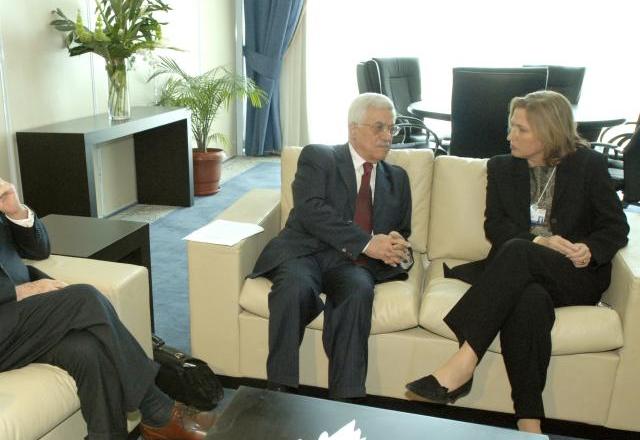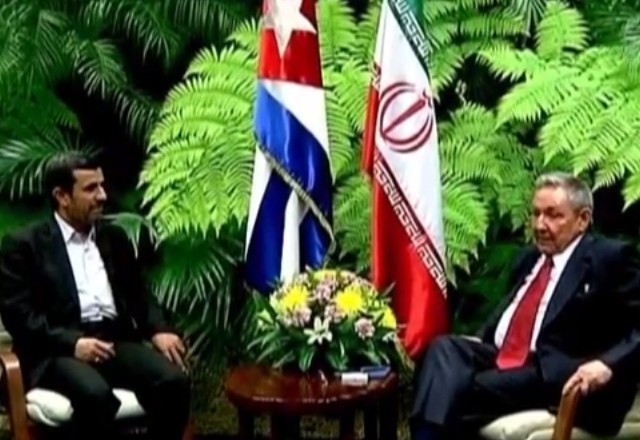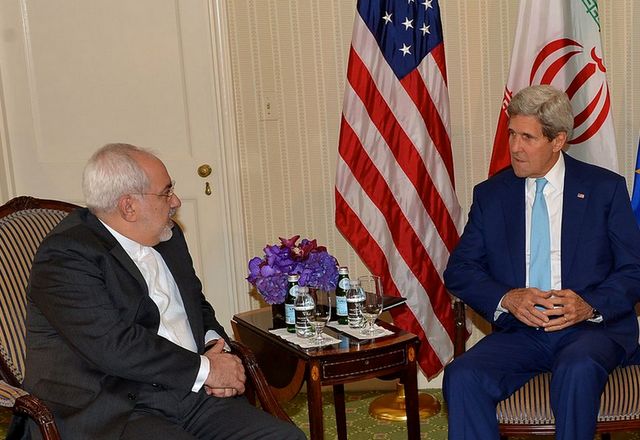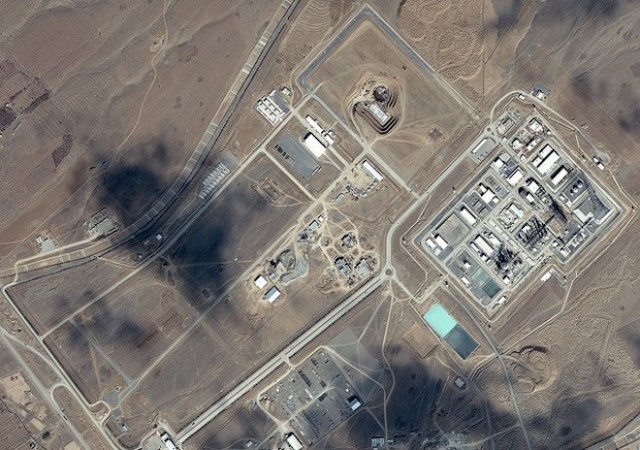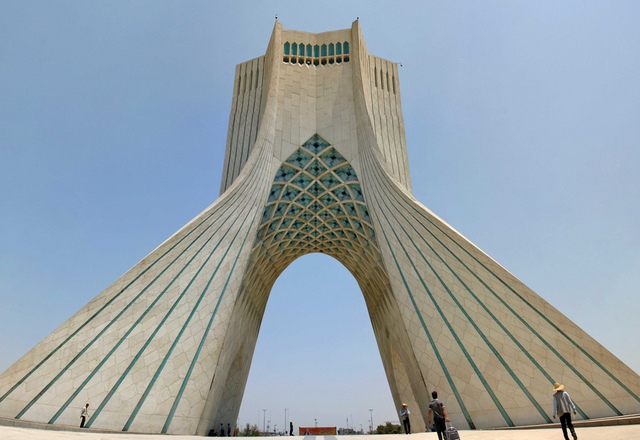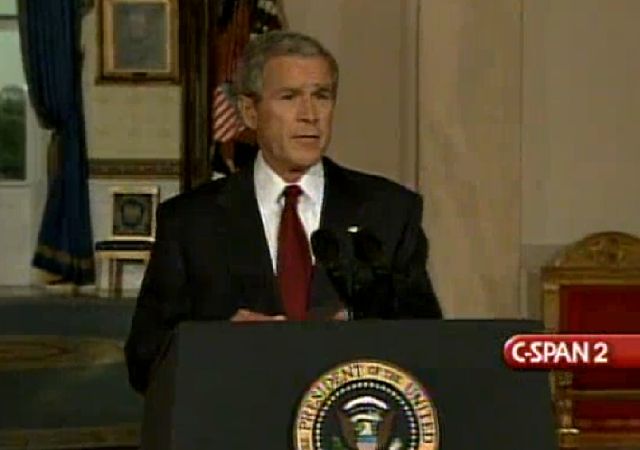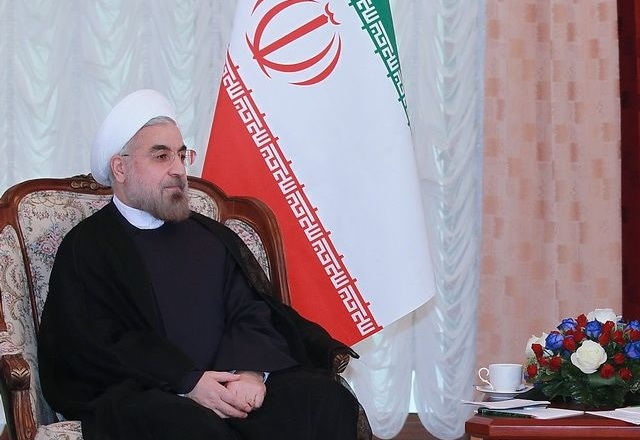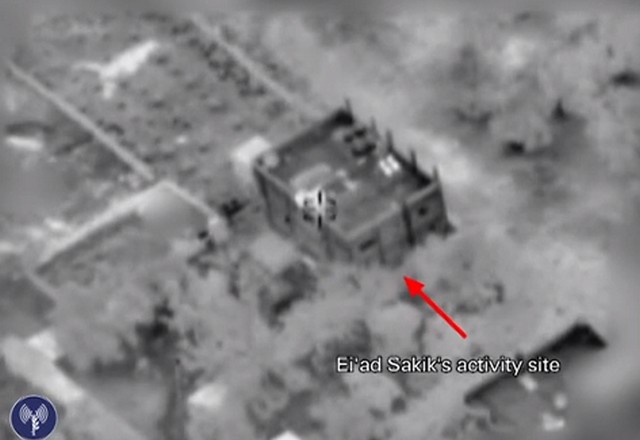The NY Times ran an editorial on June 5,
The Rush to Demonize Sgt. Bergdahl, excoriating Republicans for hypocrisy as to condemnation of the exchange of 5 top Taliban Gitmo detainees for Sgt. Bowe Bergdahl.
There are many all-too-typical Times sleights of hand, such as referring to Bergdahl as:
... a free-spirited young man who asked many questions but gave no indication of being a deserter, let alone the turncoat that Mr. Obama’s opponents are now trying to create.
In condemning a rush to judgment as to Bergdahl by critics, The Times Editors rush to an alternative judgment.
More important, the centerpiece of the Editorial, with which it begins, is a quote from John McCain (emphasis added):
Four months ago, Senator John McCain said he would support the exchange of five hard-core Taliban leaders for the release of Sgt. Bowe Bergdahl. “I would support,” he told CNN. “Obviously I’d have to know the details, but I would support ways of bringing him home and if exchange was one of them I think that would be something I think we should seriously consider.”
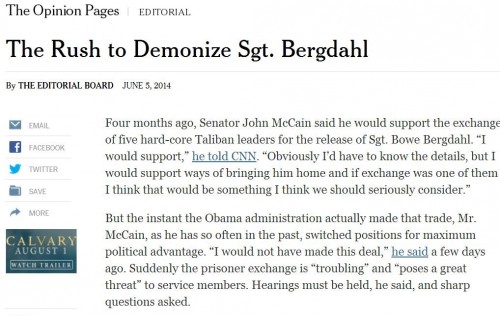
I've underlined the words "Obviously I’d have to know the details" because those words were not in the original versions of the Editorial. Rather, it was a late correction which significantly scales back the notion that McCain previously supported this exchange deal.
I've tracked the changes in the Editorial through a very useful service,
NewsDiff. The NewsDiff
archive history page for the Times Editorial reflects that the Editorial originally had a less aggressive title, and also did not include the part of McCain's quote I've highlighted. In omitting that language from the quote, the Times made it seem as if McCain supported the same deal that Obama struck. That supposed support was the foundation for the Editorial, but when the foundation shifted, the Times made like nothing changed.
Here's the edit history of the intro paragraph via NewsDiff:



